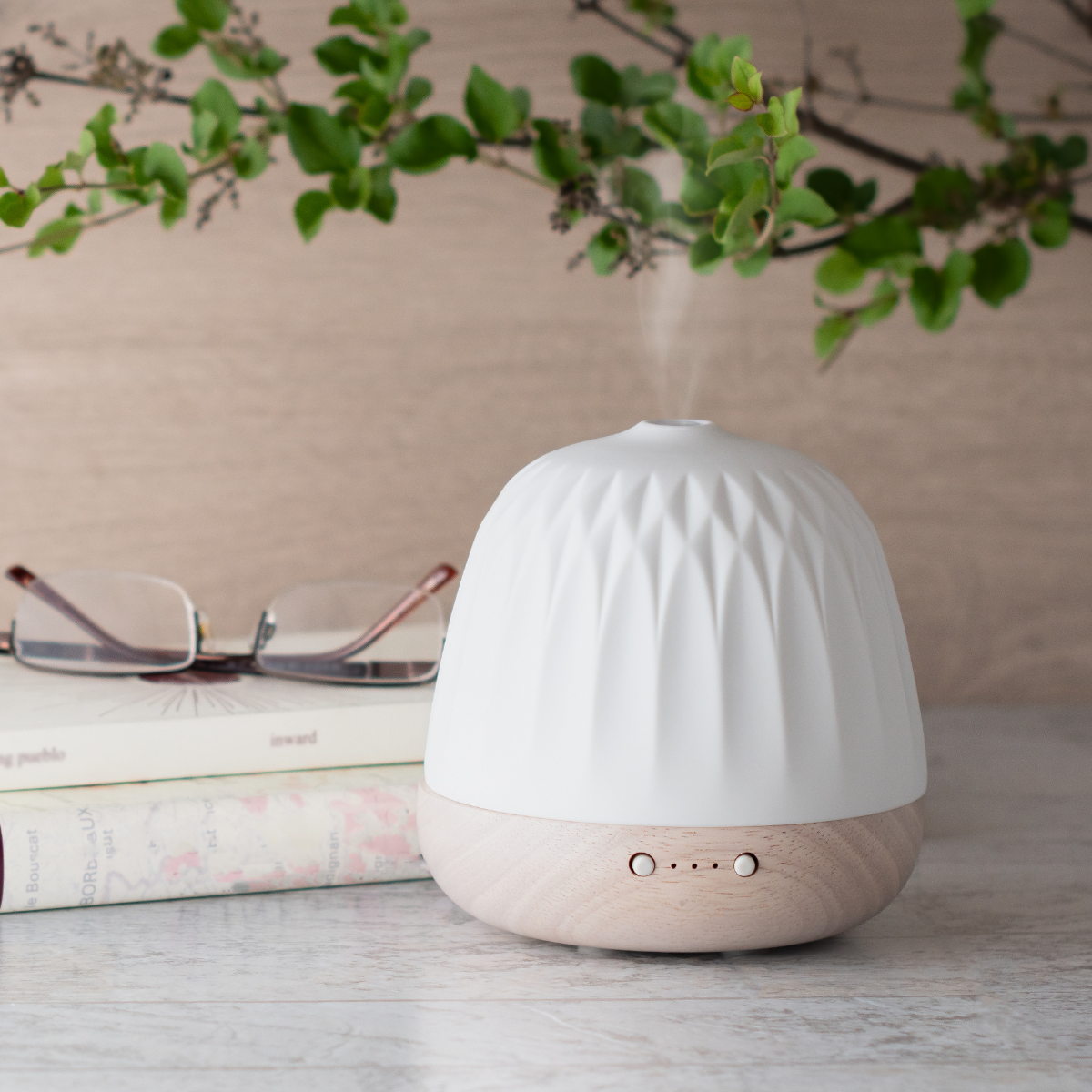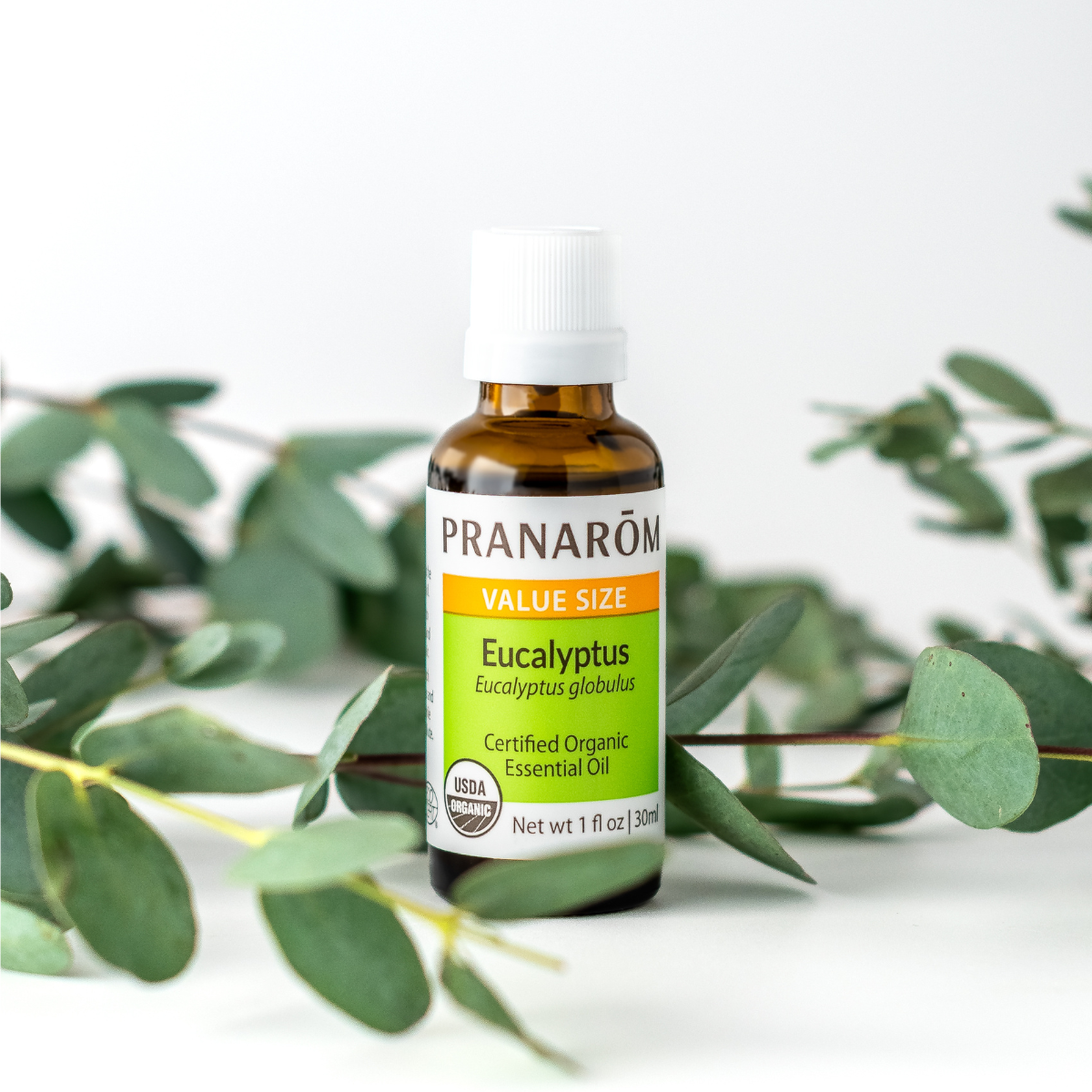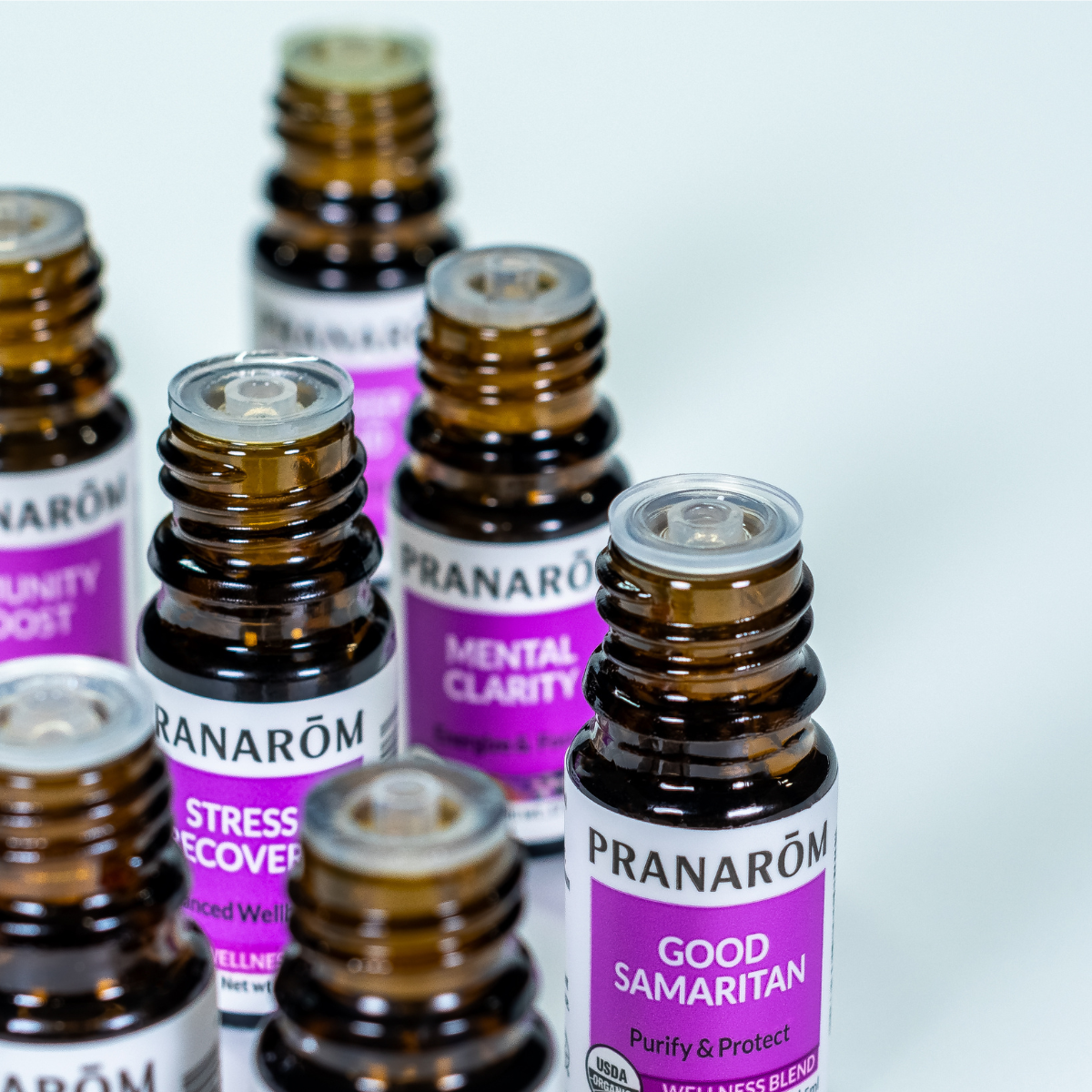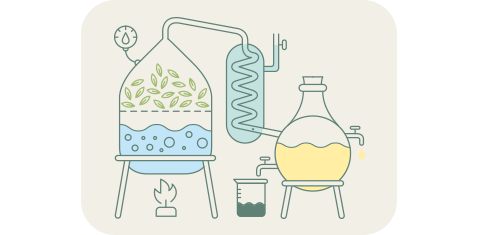The quality of essential oils, a guarantee of their effectiveness
The undeniable quality of our products is one of Pranarōm's core values. It is one of the primary motivations cited by our customers and colleagues.
In aromatherapy, the quality of the products is inseparable from their effectiveness.
Good news for natural health, the democratization of the use of essential oils mechanically leads to the multiplication of products available on the market, and with it the risk for the consumer of stumbling upon fraudulent oils. " There are essential oils and essential oils where the best rubs shoulders with the worst (...) When it is not pesticides that have destroyed their quality. A true lavender doctored by adding a lavandin, a ravintsara by adding a niaouli, a synthetic and not natural Damask rose or even an orange essence filled with heavy metal salts...", deplores Dominique Baudoux, founder of Pranarōm. So many harmful and risky practices.
In this context, how does Pranarōm guarantee the quality of its products?
The Pranarōm laboratory has always been uncompromising when it comes to the quality of its essential oils. Dominique Baudoux is adamant: "I don't compromise on quality, because it brings effectiveness. I've always wanted to personally formulate products that are real remedies to ensure healing." This quest, intrinsic to the pharmacist's profession, is based on meticulous and rigorous work. And we can prove it.
Quality, at every stage, or nothing. This is the watchword of our team of scientific experts. Even the best synthetic chemical copies can never compete in effectiveness and safety with an essential oil that Nature has produced to perfection.
— Dominique Baudoux
Pranarōm is:
- 540 tonnes of raw materials harvested in 2022;
- Up to 250 molecules identified and quantified in a chemotyped Essential Oil;
- 1,500 analyses carried out each year on products;
- 250 different Essential Oils at Pranarōm, the largest range in the world.
Thus , each batch produced by Pranarōm must meet strict criteria:
Pranarōm essential oils are:
- Chemotyped (HECT): their biochemical and aromatic characteristics are precisely identified;
- 100% natural: no synthetic molecules, no chemical emulsifying agents, no solvents and no mineral oils are added to them;
- 100% pure: they are not mixed with other similar Essential Oils, Vegetable Oils or alcohol;
- 100% complete: all the active molecules of the plant are extracted, thanks to complete distillation until the end of the process;
- They come from a certified organic harvest and sustainable agriculture in the majority of cases.
Carefully selected raw materials from loyal partners
Meticulous in the selection of its raw materials, Pranarōm has developed long-term partnerships, some for more than 20 years with its suppliers.
Choosing a partner for your raw material is a basic prerequisite. At Pranarôm, ethics and a social and environmental vision are inseparable from the product.
To guarantee this excellence, Pranarōm evaluates and supports all of its partners every year, including in the field alongside producers.
“Environmental and societal criteria are at the heart of our DNA, aspects such as fair trade certification (Fair for Life), respect for production cycles (Demeter), gender equality are taken into account during sourcing ,” adds Eric de Lorbeau, purchasing director at Pranarôm.
Permanent, rigorous and scientific control of production
Pranarôm is the only laboratory that tests each batch of essential oil at least twice before bottling:a first time during a systematic quality control of the sample even before the purchase of the products from its suppliers, then upon receipt of the goods. Ready-to-use products composed of a synergy of essential oils are tested a third time, after the creation of the mixture.
A close link with scientific research
Pranarôm has established close partnerships with international universities and laboratories to conduct clinical and feasibility studies. For the past 30 years, the company has continued to push the boundaries of scientific knowledge on the properties and applications of essential oils.
What is a chemotyped essential oil?
The chemotype is considered an identity card for each essential oil. It reveals all the biochemical and aromatic characteristics of the product, which can vary depending on the growing location, the amount of sunlight, or even the stage of development of the plant when it is harvested. Pranarom's HECT-labeled essential oils guarantee a product that is precisely identified botanically and chemically. What is written corresponds exactly to what is in the bottle.
From plant to bottle: controlling the quality of an Essential Oil
Many essential oils sold as 100% pure and natural are often cut, extended, diluted, and denatured with virgin plant or mineral oils, cheap synthetic molecules, chemical emulsifying agents, turpentine, and alcohol. These profound alterations can make essential oils allergenic, toxic, and ineffective.
They can also be blended with other related Essential Oils (e.g., the less expensive super lavandin, included in fine lavender). Some are artificially bleached or recolored. Still others are stripped of certain molecules.
The only way to provide essential oils of impeccable quality is to control their quality in a laboratory.
A quality Essential Oil is:
- HECT chemotyped. That is to say that the biochemical and aromatic characteristics of the Essential Oil are identified and quantified to guarantee the effectiveness of the Essential Oil;
- 100% natural : that is to say not denatured with synthetic molecules, chemical emulsifying agents or mineral oils;
- 100% pure : that is to say free from other related essential oils, vegetable oils, alcohol, turpentine, etc.
- 100% complete : all active molecules have been extracted through a complete distillation process.
Every step of production is important
The selection of the plant variety, the cultivation and harvesting method and the distillation process are all criteria that will determine the quality of the final product.
Before bottling, systematic tests of each batch of essential oils will ensure 100% pure, 100% natural and 100% complete quality.
The Pranarōm laboratory ensures:
- A selection of botanically certified plants;
-
Long-term partnerships with farmers and distillers;
-
Short supply chains for better traceability.
Control methods
Chromatography
Gas chromatography is performed using a sophisticated device that can identify the aromatic molecules present in an essential oil (up to 450 aromatic molecules). The graph provided by the chromatograph includes a series of peaks. Each peak represents a very specific aromatic molecule that is identified by software.
The spectrometer
The mass spectrometer determines the relative proportion of each of the aromatic molecules in an essential oil (quantitative composition).
The aromatogram
The aromatogram is an in vitro method for measuring the antibacterial power of essential oils. The technique is identical to that used to measure the bactericidal activity of antibiotics.
How to read the label on a bottle of Essential Oil?
The guarantee of a quality essential oil is also reflected in the packaging. The information it contains must be complete and accurate.
- Volume ;
- Batch number for perfect traceability from the plant in the ground to the consumer;
- Expiry date: Best before the date on the label;
- Name and address of the trademark.
-
Nature of the product : Essential oil;
-
Organic means "from organic farming" (Certisys-BE-01 control);
-
Latin name : scientific botanical name and, if applicable, the chemotype (CT);
- Common noun;
-
Distilled organ.
Certification labels
Ecogarantie: Ingredient from organic farming (Certisys BE-BIO-01 control) - ECOGARANTIE® product certified in accordance with the ECOGARANTIE specifications (CERTISYS control)
Organic farming: Ingredient from organic farming (Certisys BE-BIO-01 control) - BIO means: from organic farming (Certisys BE-BIO-01 control).











